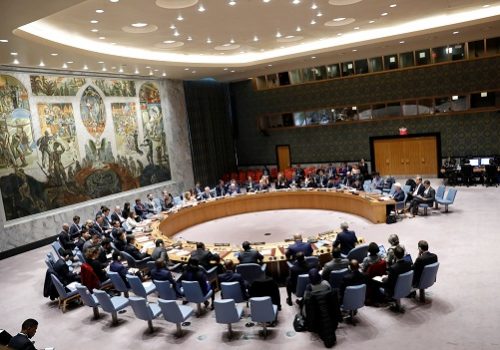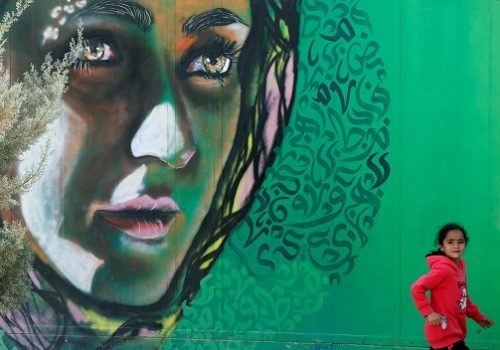Top Five of 2019
The Middle East continued to be a tumultuous region this year, as protest movements expanded across Iran, Algeria, Sudan, Iraq, and Lebanon. As we have reported and provided analysis on these ongoing issues, it is clear that much remains to be resolved in 2020. Below are the top five blog pieces of 2019 that touched a nerve with our audiences and were the most viewed of the year. As we reflect on the issues of the region, we are grateful we are in a position to continue to report on the pressing grievances to analyze steps moving forward and how US policy can help address these issues.
The Khashoggi killing through Saudi Eyes – Stephen Grand
On a recent trip to Riyadh, I heard anger and frustration regarding the murder of Jamal Khashoggi. To my surprise, however, the Saudis with whom I spoke directed much of the blame toward the United States and others rather than their own government (though in private I heard some of this). These Saudi interlocuters argued that the United States has been an inconstant ally of late, and that it and other enemies of Saudi Arabia (a list which was never defined, but appeared to include Iran, Turkey, Qatar, the Muslim Brotherhood, and Democrats in Congress) are using the Khashoggi incident to undermine its stability. Clearly the convoluted, funhouse-mirror nature of today’s populist nationalist rhetoric is not confined to the West. As bizarre as this argument may sound, it is important to understand its logic. Read more here.
Egypt’s latest protests are an alarm bell for Sisi – Alessia Melcangi and Giuseppe Dentice
Egypt seems to be getting back to normal after a number of demonstrations against President Abdel Fattah al-Sisi that began on September 20. This may be the consequence of the zero-tolerance approach pursued by the government. In over three weeks of protests, local authorities arrested almost 3,000 people, and imposed a curfew in all major Egyptian cities. While limited in numbers, the demonstrators took to the streets to protest the regime and the weakness of the Egyptian political system: increasing corruption, draconian repression, and economic instability. All these factors have created more than a few embarrassments for the powerful elite, which has tightened its already heavy control of dissidents. Read more here.
Revolution in Lebanon – Frederic C. Hof
The peaceful protests sweeping Lebanon are revolutionary. Lebanese of multiple political persuasions and all sects have a powerful message for a political class whose incompetence is equaled only by its corruption: Go Away. To date the principal defender of this abysmal political class and Lebanon’s miserable status quo (featuring a failing economy from which the political elite steals at will) has been Iran’s man in Lebanon, Hezbollah’s Secretary-General Hassan Nasrallah. Not only are thousands of his young constituents participating in the protests, but Nasrallah knows one thing with absolute certainty: his ability to act with impunity as the terrorist, money laundering, drug running, murder incorporated representative of Iran in Lebanon depends on Lebanese politics staying in the sewer. Read more here.
What the Abqaiq attack should teach us about critical infrastructure – Thomas S. Warrick
The September 14 aerial attack on the Saudi Aramco oil facilities at Abqaiq shook up oil markets and Mideast experts around the world. It should also shake up complacency about the security of world-class critical infrastructure everywhere within range of Iranian cruise missiles and drones. Whoever attacked Abqaiq—whether Iran, as seems increasingly likely, or its Houthi or Iraqi militia proxies—must have known that they were targeting some of the most strategic critical infrastructure in the world. Read more here.
Iraq Protests: How should Iraq and the US respond? – C. Anthony Pfaff
This week Iraq has experienced the largest protests to date against Prime Minister Adil Abdul-Mahdi’s government, if not any Iraqi government since the fall of former President Saddam Hussein. The protests were triggered by the unexplained firing of Lieutenant General Abdul Wahab al-Saadi, a counter-terrorism leader who played a critical role in the liberation of Mosul and whose firing was seen as a concession to Iran. The protests rapidly expanded to include grievances associated with poor government services and limited economic opportunities, conditions under which Iraqis have been living since the 1990s and which were only exacerbated by the 2003 US invasion. Of course, protests are nothing new. Read more here.
Related Content
Image: Poland's Prime Minister Mateusz Morawiecki and U.S. Secretary of State Mike Pompeo talk during the Middle East summit in Warsaw, Poland, February 14, 2019. REUTERS/Kacper Pempel

